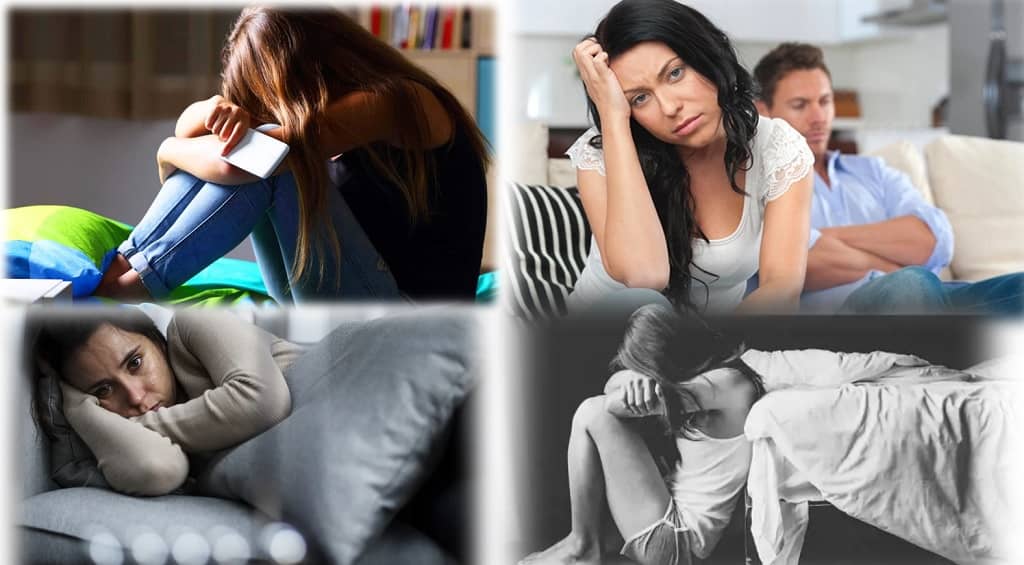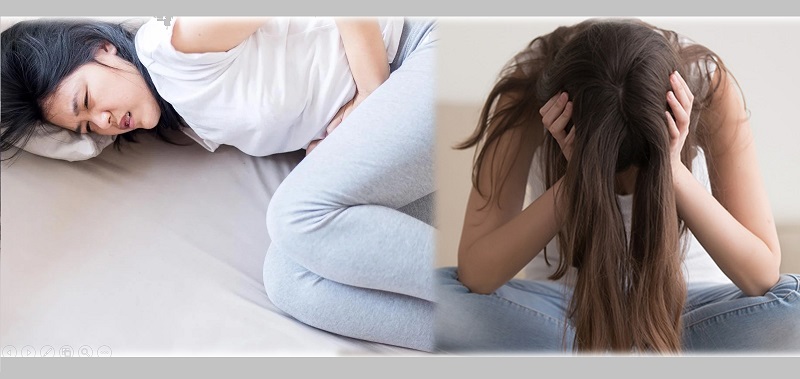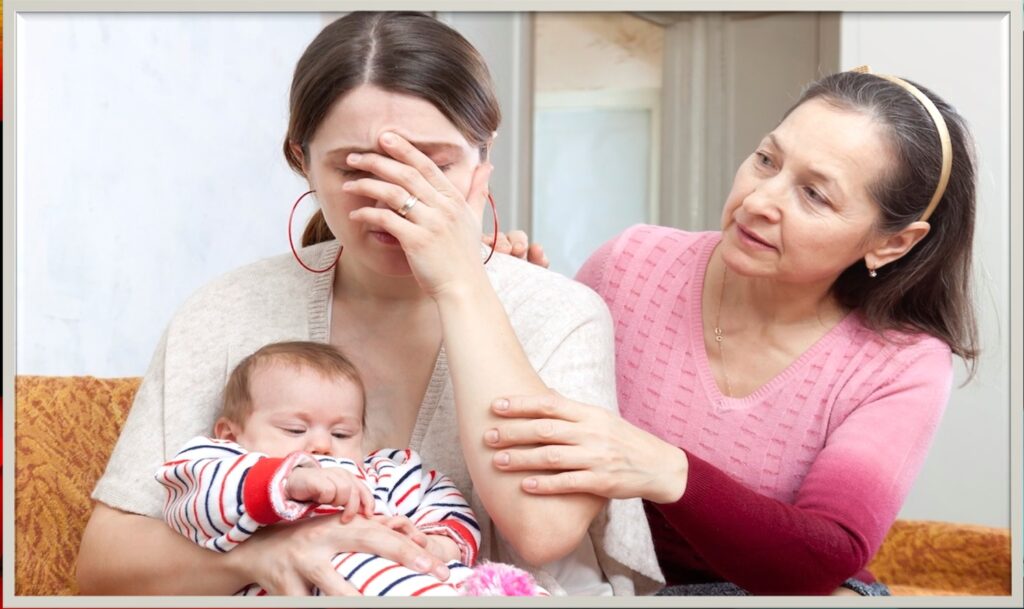Major depressive disorder (MDD), also known as clinical depression, is a mental disorder characterized by at least two weeks of persistent low mood, low self-esteem, and loss of interest or pleasure in normally enjoyable activities.
Depression is a medical condition that affects your mood and ability to function. Depression is a common condition that affects millions of Americans each year. Anyone can experience depression – even if there doesn’t seem to be a reason for it.

Symptoms of Major Depressive Disorder
Major depression significantly affects a person’s family and personal relationships, work or school life, sleep and eating habits, and overall health.
Behavioral symptoms
- A person with a major depressive episode typically exhibits a low mood that permeates all aspects of life and an inability to experience pleasure from previously enjoyable activities.
- Depressed people may be preoccupied with – or ruminate on – thoughts and feelings of worthlessness, undue guilt or regret, helplessness, or hopelessness.
- Other symptoms of depression include poor concentration and memory, withdrawal from social situations and activities, decreased sex drive, irritability, and thoughts of death or suicide.
- Insomnia is common; in a typical pattern, a person wakes up very early and cannot fall back asleep. Hypersomnia or excessive sleeping may also occur.
- In severe cases, depressed people may have psychotic symptoms. These symptoms include delusions or, less commonly, hallucinations, usually unpleasant.
Physical symptoms
A depressed person may report more physical symptoms, such as fatigue, headaches, or digestive problems; physical complaints are the most common problem in developing countries according to the World Health Organization’s criteria for depression.
Appetite often decreases, leading to weight loss, although increased appetite and weight gain occasionally occur.
Causes of MDD
Causes of depression include difficulties in life, brain chemistry abnormalities, certain medications, and physical conditions.
Many biological, psychological, and social factors play a role in the development of depression.
Adverse childhood experiences (including abuse, neglect, and family dysfunction in childhood) significantly increase the risk of major depression, especially if there is more than one type.
Childhood trauma is also correlated with depression severity, poor response to treatment, and duration of illness.

Genetics
Family and twin studies have found that nearly 40% of individual differences in risk of major depressive disorder can be explained by genetic factors. Like most psychiatric disorders, major depressive disorder is likely influenced by many individual genetic changes.
MDD Diagnosis
A diagnosis of major depressive disorder is based on a person’s self-reported experiences, behavior reported by relatives or friends, and a mental status examination. There is no laboratory test for the disorder, but testing can be done to rule out physical conditions that can cause similar symptoms.
The most common time of onset is in a person’s 20s, with women being affected about twice as often as men.
Treatment of Major Depressive Disorder
There are several methods of treating major depression. These approaches include psychotherapy, antidepressant medications, electroconvulsive therapy (ECT), and other somatic therapies. However, ECT is generally avoided except in extreme circumstances in favor of both psychotherapy and antidepressants.
A medical psychiatrist can provide both psychotherapeutic services and prescribe antidepressants, which differ for each person according to individual needs.
MDD is often treated with medication and psychotherapy.
Medication
If you find that you are experiencing any of the symptoms or in any way related to major depressive disorder, you should seek medical help. Fortunately, the major depressive disorder has become much less stigmatized in recent years. There is a lot of in-depth information available about depression, and your doctor of choice will often likely go over it with you so that you can choose the best treatment for your lifestyle.
Antidepressants are drugs used to treat depression. They work by returning the chemicals in your brain to the right levels. This helps relieve your symptoms. Give your medicine time to work. It may take a few weeks to feel better. Continue to take the medication as directed. Do not stop taking or change the amount (dose) you take without talking to your consultant.
Ask your consultant about possible side effects and what to do if you have any. If you have delusions or hallucinations, your consultant may prescribe additional medications. Tell your provider about any other medications you are taking. Some medications can change the way antidepressants work in your body.
Psychotherapy Therapy
Psychotherapy therapy can be provided by mental health professionals to individuals, groups, or families.
Psychotherapy therapy, also known as psychological therapy or talk therapy, can effectively treat people with MDD. It involves meeting regularly with a mental health professional to talk about your condition and related issues.
- adapt to a crisis or other stressful event
- strive to achieve a balanced view of a given situation and act in accordance with values rather than based on mood
- improve your communication skills
- find better ways to cope with challenges and solve problems
- increase your self-confidence
- regain a sense of satisfaction and control in your life
For more complex and chronic forms of depression, a combination of medication and psychotherapy can be used. There is moderate-quality evidence that psychological therapies are a useful short-term adjunct to standard antidepressant treatment for treatment-resistant depression.
Another possible treatment is group therapy, which allows you to share your feelings with people who can relate to what you are going through. A mental health professional may also recommend other types of therapy, such as cognitive behavioral therapy or interpersonal therapy.
Lifestyle Adjustments
- Certain lifestyle modifications may also help relieve certain symptoms. Physical exercise has been found to be effective in major depression and can be recommended to people who are willing, motivated, and healthy enough to participate in an exercise program.
- Create a calming bedtime routine that can help you wind down at the end of the day, and stick to a consistent sleep schedule to improve the amount and quality of sleep you get.
- Eat a healthy diet. Despite what you may have read, there is no diet that can cure or prevent depression. But a balanced meal plan will give you the nutrients you need to keep you healthy and full of energy.

